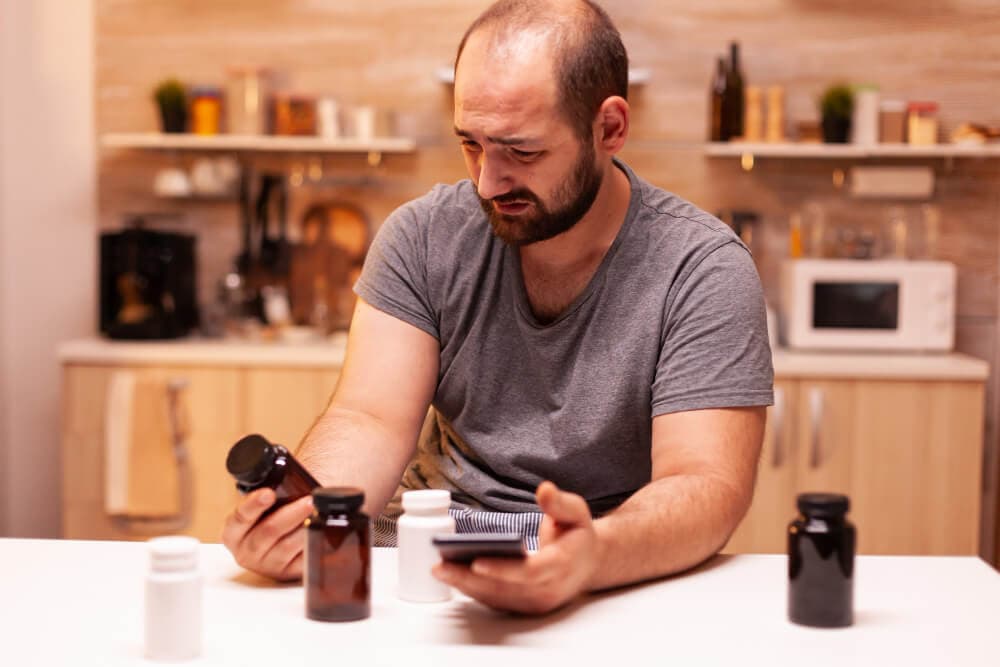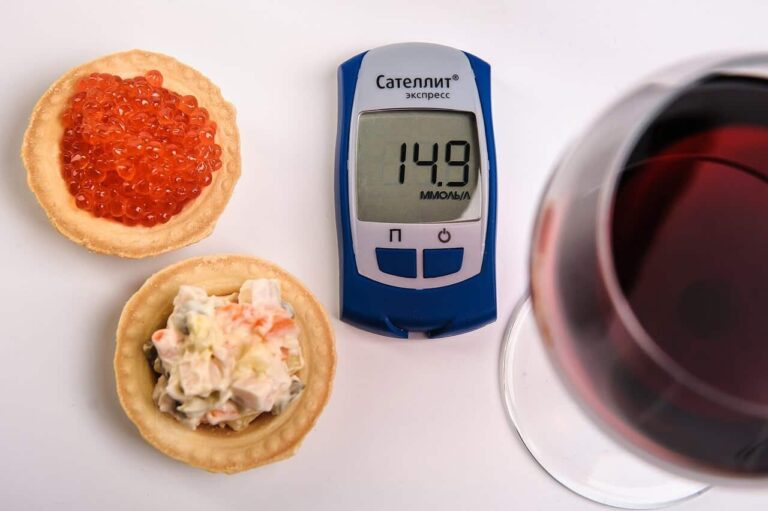You’ve done everything right and you’re left wondering, can stress raise your blood sugar? You skipped breakfast, you haven’t had a single carb in hours, you took your basal insulin. You check your blood sugar, expecting a perfectly flat, beautiful line on your CGM. Instead, it’s climbing. 180… 200… 220 mg/dL… for no reason.
You wrack your brain. Did I miscalculate yesterday’s dinner? Is my infusion set bad? Did I somehow absorb carbs from thin air?
Spoiler alert: It might be none of the above. The culprit might just be that passive-aggressive email from your boss, the looming deadline, or the argument you had this morning. Welcome to one of the most maddening and misunderstood aspects of Type 1 Diabetes: the stress spike.
Yes, your feelings can raise your blood sugar. And it’s not “all in your head.” It’s deep, powerful biology at play. Let’s pull back the curtain on this ghost in the machine.
A Quick Breather (Disclaimer): I’m your content manager, navigating this T1D life right alongside you. I’m not a psychologist or a doctor. This guide is about sharing knowledge and lived experiences. For managing severe stress or mental health, please seek professional help. For medical advice, consult your endocrinologist.
Your Ancient Alarm System in a Modern World
To understand the stress spike, you need to understand your body’s ancient, hard-wired survival programming. Your body has a very simple “threat detection” system, and it doesn’t really differentiate between a saber-toothed tiger chasing you and your internet going out during a critical Zoom meeting.
A threat is a threat.
When your brain perceives a threat—physical or emotional—it hits the panic button. This floods your system with two powerful hormones: adrenaline and cortisol.
- Adrenaline (The “Sprint” Hormone): Gives you that immediate jolt of energy. Heart pounds, senses sharpen.
- Cortisol (The “Marathon” Hormone): The long-term stress manager, keeping you on high alert.
These hormones have one primary mission: to give your muscles the fuel they need to either fight the threat or flee from it. And what’s the quickest, most potent fuel available? Glucose.
So, these hormones march over to your liver and command it: “Release the emergency sugar stores! Now!” Your liver dutifully dumps glucose into your bloodstream.
In a person without diabetes, their pancreas would release insulin to handle this surge. For us? We’re just left with high blood sugar while sitting in traffic, fuming. Your body is preparing you to fight a lion, but you’re just trying to survive a spreadsheet.
The link between psychological stress and glucose metabolism is well-documented.
How Different Types of Stress Can Raise Blood Sugar
The way stress affects you can vary depending on its type and duration.
| Type of Stress | The Real-Life Scenario | The Likely BG Response |
| Acute Stress (The Sprint) | A job interview, a near-miss in traffic, public speaking, a final exam. | A sharp, fast-acting spike driven by adrenaline. Can sometimes be followed by a drop as the stress subsides. |
| Chronic Stress (The Marathon) | Financial worries, a toxic work environment, relationship problems, diabetes burnout. | A stubborn, persistent elevation in blood sugar driven by cortisol, making you more insulin resistant. |
| “Good” Stress (Eustress) | A thrilling sports match, a first date, watching a scary movie, riding a rollercoaster. | Yep, even excitement is a stressor! It can also cause a temporary spike. |
The Vicious Cycle: When High BG Causes Stress
Here’s where it gets truly cruel. Stress causes high blood sugar. But high blood sugar—feeling sluggish, thirsty, and irritable—is also a physical stressor on your body.
This creates a vicious feedback loop:
- You get stressed, your BG goes up.
- You see the high number and get stressed about the high number.
- This new stress keeps your BG stubbornly high.
- You feel physically awful, which adds more stress.
Recognizing this cycle is the first step to breaking it. It’s not your fault; it’s a biological trap.
Taming the Ghost: Your Stress-Fighting Toolkit
You can’t eliminate stress from your life, but you can learn to manage your body’s response to it.
1. Immediate Response Tools (For “In the Moment” Spikes)
- Conscious Breathing: When you feel that wave of stress, stop. Take five slow, deep breaths. Inhale for four counts, hold for four, exhale for six. This sends a signal to your nervous system to stand down from high alert.
- A Short Walk: Just 5-10 minutes of light movement can help your muscles start using up some of that excess glucose and clear your head.
2. The Million-Dollar Question: Should You Bolus for Stress?
You see a 250 mg/dL spike after an argument. The temptation to “rage bolus”—to aggressively correct it—is immense. Be very, very careful.
A stress spike from adrenaline can be temporary. The stressor ends, the adrenaline fades, and your blood sugar can drop just as quickly as it rose. If you take a large correction dose at the peak, you are setting yourself up for a crashing low an hour later.
- The Safer Strategy:
- Wait & Watch: Give it 30-60 minutes. Use the calming techniques above. Does the spike level off or start to come down on its own?
- The “Mini-Correction”: If it’s stubbornly high, consider taking a half dose of what you would normally take to correct. It’s better to be slightly high for another hour than to be dangerously low.
3. Proactive Lifestyle Tools (Building Resilience)
- Consistent Exercise: Regular physical activity is the single most effective way to manage cortisol and improve insulin sensitivity.
- Mindfulness & Meditation: Apps like Calm or Headspace aren’t just trendy; they are powerful tools for training your brain to react less intensely to stressors.
- Protect Your Sleep: A poor night’s sleep raises cortisol levels before you even start your day, making you more prone to stress spikes.
Final Thoughts: It’s Not You, It’s Your Biology
So, can stress raise your blood sugar even if you don’t eat? One hundred percent, yes. It is a frustrating, confusing, and completely valid part of living with Type 1 Diabetes.
But it is not a personal failure. It is not a sign that you “did something wrong.” It is your body’s ancient programming doing its job in a world it wasn’t designed for. So the answer to can stress raise your blood sugar is a definitive yes, and understanding this is the first step toward managing it.
Our job isn’t to be perfect. Our job is to become curious detectives of our own bodies. When you see that unexplained high, instead of asking “What did I eat?”, start asking, “What did I feel?”. The answer might just be the key to your next move.











